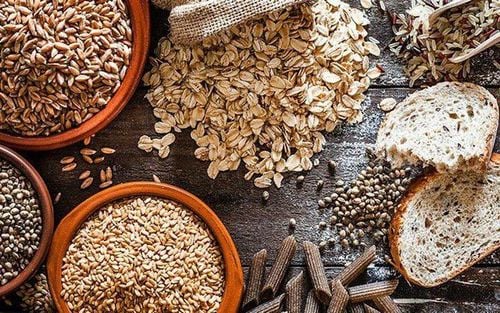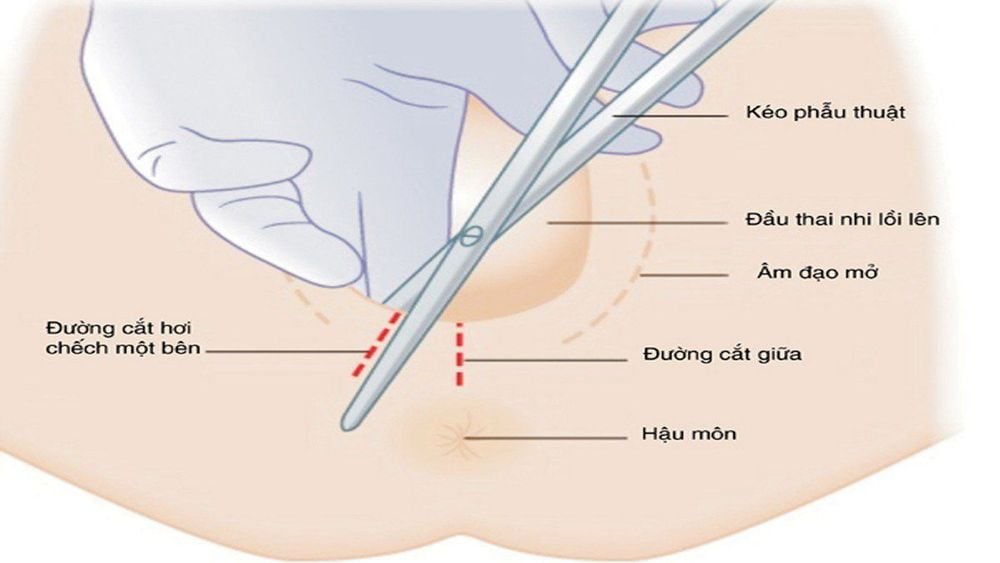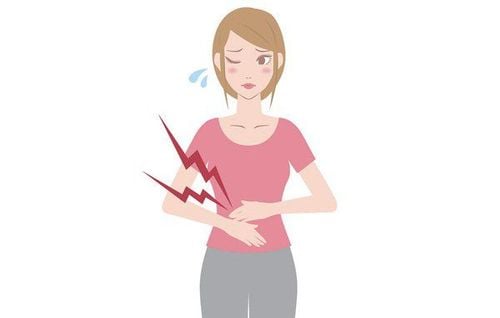This is an automatically translated article.
The article was professionally consulted by Specialist Doctor I Tran Thi Phuong Loan - Obstetrician and Gynecologist - Department of Obstetrics and Gynecology - Vinmec Phu Quoc International General Hospital.Your body has gone through many changes during pregnancy and childbirth. You need a lot of time to help your body recover and ensure your health to take care of your baby. In addition to resting, you need to eat healthy nutrition to help you do that. The following article will give you several ways to:
1.Adjust yourself to motherhood
Adjusting to daily life after giving birth can be challenging for a mother, especially if you are having a baby for the first time. While taking care of your baby is one of the most important tasks, you also need to take care of yourself.
Most new mothers will not return to work for at least the first six weeks after giving birth. This period allows the body to adapt and recover. Because your baby has to be fed and often changes in routine, you may have trouble sleeping at night. This can be frustrating and exhausting. However, you can rest assured that later on, the child's living habits will be formed and you will also get used to the child's living time. In the meantime, here's what you can do to make the transition easier:

Uống nhiều nước khi đang cho con bú rất tốt cho sức khỏe của bạn
Rest much. Get as much sleep as possible to combat fatigue and lethargy. Your baby may wake up every 2-3 hours to feed. To make sure you get enough rest, sleep when your baby sleeps too. Seek help. Don't hesitate to get help from family and friends during the postpartum period as well as after this period. Your body needs to recover and any practical help around you can help give you the break you need. Friends or family can prepare meals, run errands, or help take care of other children in the house. Healthy nutrition. Maintaining a healthy diet promotes the healing process. Increase your intake of whole grains, vegetables, fruits, and protein. You should also increase your fluid intake, especially if you are breastfeeding. Do exercise. Your doctor will let you know when you can exercise, but the exercises shouldn't be too heavy. Try going for a walk near your house. The change of scenery is refreshing and can increase your vital energy levels.
2.Baby blues syndrome and postpartum depression

Trầm cảm sau sinh là căn bệnh phổ biến ở phụ nữ sau khi sinh con
If you have postpartum baby blues syndrome is a normal sign after birth. This syndrome usually occurs a few days after birth and can last up to two weeks. In most cases, symptoms will not appear frequently and to varying degrees. About 70 to 80 percent of mothers experience mood swings or negative feelings after childbirth. Baby blues syndrome is caused by hormonal changes and symptoms can include:
Unexplained crying Irritability Insomnia Sadness or mood swings Mood swings Restlessness When you should see a doctor Doctor?
Baby blues are different from postpartum depression. Postpartum depression occurs when the above symptoms persist for more than two weeks.
Other symptoms may include feelings of guilt and worthlessness, and loss of interest in daily activities. Some women with postpartum depression withdraw from their family, don't care about their baby, and have thoughts of hurting their baby.
Postpartum depression needs treatment, so it's important to talk to your doctor if your depression persists for more than two weeks after giving birth or if you have thoughts of harming your baby. Postpartum depression can develop any time after giving birth, even up to a year after giving birth.
3.How to take care of yourself after giving birth

Sau khi sinh bạn có thể ăn ngũ cốc nguyên hạt để giảm cân
Along with emotional changes, you will experience physical changes after giving birth, such as weight gain. So weight loss doesn't happen overnight, so be patient. Once your doctor tells you when and what types of exercise you can do, start with a few minutes a day of moderate intensity and gradually increase the length and intensity of your exercise. The types of exercises you can do postpartum are walking, swimming, or taking an aerobics class.
Weight loss also involves a healthy and balanced diet that includes fruits, vegetables and whole grains. Every new mom loses weight at a different rate, so don't compare your weight loss efforts with others. Breastfeeding can help you return to your pre-pregnancy weight faster because it increases your daily calorie burn.
Talk to your doctor if you have questions or concerns about your body's changes in the postpartum period. Other body and self-care changes after giving birth include:
Breast engorgement
Your breasts will fill with milk a few days after giving birth. This is a normal process, but swelling (engorgement) can be uncomfortable. To ease discomfort, you can apply a warm or cold compress to your chest. Sore nipples from breastfeeding will usually go away as your body adjusts to the habit of breastfeeding. You can use nipple cream to soothe cracks and relieve pain.
Constipation
Eat foods rich in fiber to stimulate bowel movements, and at the same time drink lots of water. You can ask your doctor about medications that are safe to treat if you have persistent constipation. Fiber can also relieve hemorrhoids as can over-the-counter creams or soaking your butt in the bath. Drinking water helps to ease urination problems after giving birth. If you have urinary incontinence, Kegel exercises can strengthen your pelvic muscles and treat this incontinence.

Rạch tầng sinh môn giúp chuyển dạ dễ dàng hơn
Changes in the pelvic floor
The area between your rectum and vagina is called the perineum. This area will often be stretched and torn or cut during delivery. Sometimes your doctor will make an episiotomy in this area to make labor easier. You can help this area recover after giving birth by doing Kegel exercises, cold compressing the area, and sitting on pillows.
Sweating
Due to hormonal changes can cause night sweats after childbirth. Uterine pain
Uterine contractions after childbirth can cause cramps. However, the pain will subside over time. If cramps don't subside and are affecting your life, talk to your doctor about safe pain relievers.
Vaginal discharge
Vaginal discharge is typical two to four weeks after giving birth. This is your body's way of removing blood and tissue from your uterus. Therefore, you need to wear tampons until the discharge stops.
Do not use tampons or douches until your 4 to 6 week postpartum follow-up appointment or until your doctor approves. Using these products during the postpartum period may increase the risk of uterine infections. If your vaginal discharge has a foul odor, notify your doctor. You may continue to bleed for the first week postpartum, but if you experience heavy vaginal bleeding, such as soaking a tampon within two hours, contact your doctor right away.
4. Postpartum nutrition guide
Your body has gone through many changes during pregnancy and childbirth. In addition to rest, you need to eat healthy to help you carry out your daily tasks and keep yourself healthy.
Weight gain during pregnancy helps build energy stores for you to recover and breastfeed. After giving birth, you need to eat a healthy and balanced diet so that you can stay active and care for your unborn baby.

Nếu bạn đang cho con bú hãy ăn khi đói không nên nhịn để giảm cân
Most lactation experts recommend eating on an empty stomach. But many mothers may be too tired or busy to skip meals. So it's important to plan meals that are simple, healthy, and easy to prepare.
According to experts, you should divide foods into 5 groups:
Grains. Food made from wheat, rice, oats, cornmeal, barley or other grains, all of which are called grains. Examples include whole wheat, brown rice, and oatmeal. Vegetable. Make a variety of vegetables in your daily meals. Choose a variety of vegetables, including dark green, red and orange vegetables, legumes (peas) and starchy vegetables. Fruit. Any fruit or 100% juice counts as a fruit group. Fruit can be fresh, canned, frozen or dried, and can be left whole, chopped or pureed. Dairy products. Dairy products and dairy foods are considered part of this food group. Focus on fat-free or low-fat products, as well as those high in calcium. Protein. Eat lots of protein. Choose lean meats and low-fat poultry. Choose to eat plenty of fish, nuts, seeds, and beans. Oils are not a food group, but some oils such as nut oils contain important nutrients, so you should include them in your diet every day. Other oils such as tallow in solid form should not be used or used frequently.
Most moms want to lose weight after giving birth, but excessive dieting and rapid weight loss can be harmful to you and your baby if you're breastfeeding. It may take several months for you to lose the weight you gained during pregnancy. You can achieve this goal by cutting out high-fat snacks. Focus on a diet rich in fresh vegetables and fruits, balanced with protein and carbohydrates. Exercise also helps burn calories and tone muscles, limbs.
Along with balanced meals, you should drink more water if you are breastfeeding. You may find that you are thirsty more quickly when your baby is nursing. Water and milk are good options at this point. Try keeping a bottle of water and even some healthy snacks next to your bed or nursing chair.
Postpartum health care is an opportunity for women to address the complications and medical issues that develop after pregnancy, to have their mental and physical health assessed by a medical professional, thereby optimizing health throughout life. Most people only focus on the health of the baby, but for mothers to focus on taking care of themselves is also meaningful and necessary.
Doctor Tran Thi Phuong Loan was former Head of Obstetrics and Gynecology Department, An Giang Central General Hospital; Doctor treated at Hoang Anh Gia Lai University of Medicine and Pharmacy Hospital before working as an Obstetrician and Gynecologist at Vinmec Phu Quoc International General Hospital as it is now.
If there is a need for consultation and examination at the Hospitals of the National Health System, please book an appointment on the website to be served.
Please dial HOTLINE for more information or register for an appointment HERE. Download MyVinmec app to make appointments faster and to manage your bookings easily.
References: healthline.com, stanfordchildrens.org, todaysparent.com
SEE MORE
Review of birthing experience in Vinmec from A to Z Why should you choose Vinmec delivery service? Painless birth in Vinmec - Gentle labor, healthy baby













